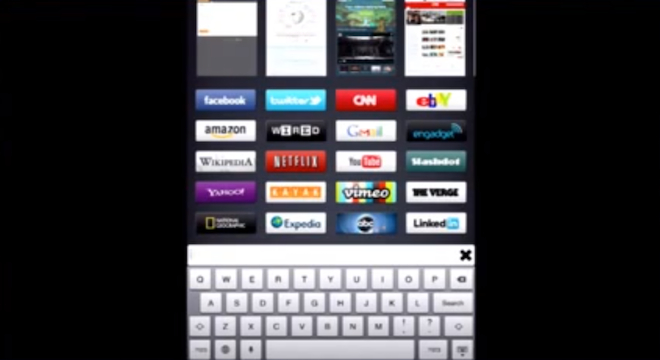There may soon be a fox, or two, in Apple’s henhouse: Mozilla, the company behind the popular Firefox Web browser, on Sunday posted a rough video presentation of a new Web browser it is building specifically for the iPad.
Dubbed “Junior,” for now, the browser would be Mozilla’s first browser for an Apple mobile device, but the company’s engineers said that it would be better than the default browser that ships with the iPad and iPhone, Apple’s Safari.
“We want to build a browser for the iPad for many reasons,” said Mozilla engineer Alex Limi in the video, later adding “We have no vehicle on one of the biggest consumer platforms in the world right now.”
Limi also said that one of the reasons Mozilla was working furiously to bring the Junior browser to market was because “Chrome’s going to ship Chrome for iOS soon,” apparently a reference to Google Chrome, the browser that by one popular measure recently became the most popular for desktop computers in the entire world, overtaking Mozilla’s Firefox.
Check out the video demo of Mozilla’s Junior browser here:
The Junior browser dispenses almost wholly with the traditional desktop browser design and even the general mobile browser look and feel. The iPad user is presented with a full-screen view of the webpage they are on and two semi-transparent buttons overlaying the webpage on either side of the screen.
On the left is a “Back” button and on the right is a “Plus,” button, which, when clicked, opens up a whole new menu giving the user what Mozilla engineer Trond Werner Lansen says in the video are “the three vital things” that a Web browser should do: Provide access to recently-visited websites, in this case as thumbnails on the top of the screen, access to favorited or bookmarked websites as icons in the middle, and access to a totally new website in the form of the white address bar and a keyboard at the bottom of the screen.
Limi noted that the Mozilla Junior browser was based on the same underlying Webkit technology that the Apple Safari and Google Android browsers operate on.
The Mozilla video doesn’t provide any estimated availability date. When asked about the project, a Mozilla spokesperson told TPM: “Junior is an early-stage experimental project and is not confirmed for development by Mozilla or for a future version of Firefox. All projects and experiments at Mozilla are developed in the open to gather ideas and feedback.”
Still, the browser seems well on its way to reality, and the demo verifies an earlier report in Bloomberg Businessweek published December 2011 that stated Mozilla was plowing resources into mobile browser development.
Indeed, that makes sense given that mobile is exactly where Web users are headed, with mobile traffic accounting for 10 percent of the total Internet traffic in 2012 so far, compared to just 1 percent three years ago, according to the latest annual Internet Trends report compiled by Mary Meeker at influential venture capital firm Kleiner Perkins Caufield Byers. Other surveys project that the mobile devices will be the dominant method of Internet access by 2015.
But as Mozilla’s Limi intuited, Mozilla is clearly not the only browser maker that sees going mobile as an imperative. As a Google spokesperson told TPM when asked about the possibility of a Chrome browser being released for iOS, “We would like to bring the same speedy, simple and seamless Chrome web browsing experience to other mobile platforms, but have nothing to announce at this time,” echoing the same line Google took when it first released Chrome for Android smartphones in February.






